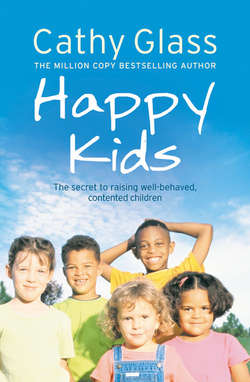Читать книгу Happy Kids: The Secrets to Raising Well-Behaved, Contented Children - Cathy Glass, Cathy Glass - Страница 21
Don’t use the third person
ОглавлениеI have never understood why many parents, teachers, nursery staff and adults generally refer to themselves in third person when talking to a child – ‘You know Mummy loves you', ‘Daddy told you not to go in the shed', ‘Mrs Smith asked you to clear up after art.’ I can’t think of any other situation where we do this except when an adult talks to a child, and I find it most odd.
You wouldn’t go into a hairdresser’s and say about yourself, ‘Mary would like a hair cut, please.’ Or go to the bank and say, ‘Dave would like to talk to the manager about a loan.’ Of course you wouldn’t. It would sound ludicrous, and you would never address another adult in this way. Yet many of us do it with our children.
How or why this habit has developed, I’ve no idea and I haven’t been able to find out. But it is a very unhelpful way for an adult, particularly a parent, to talk to a child, for one very good reason: it has the effect of distancing the Request or statement from the adult, which means the child is less likely to respond to it. The nature of the third person is distance: it is not about me (I) but that person over there. The very nature of the third person makes it one step removed and therefore weaker in its effect.
Instead, always use the first person, ‘I’, when talking to a child, whether expressing emotion or managing a child’s behaviour through a Request or direction. ‘I love you’ has a far greater and more immediate and heartfelt ring than ‘Mummy loves you.’ ‘Tom, I have told you not to pull your sister’s hair’ is far more immediate and authoritative than ‘Tom, Mummy has told you not to pull your sister’s hair.’ ‘Tom, I have asked you to put down that axe’ is far more effective than ‘Tom, Mummy has asked you to put down that axe'.
If as a parent, care worker or teacher you have slipped into the habit of using the third person when addressing a child, I urge you to stop.
